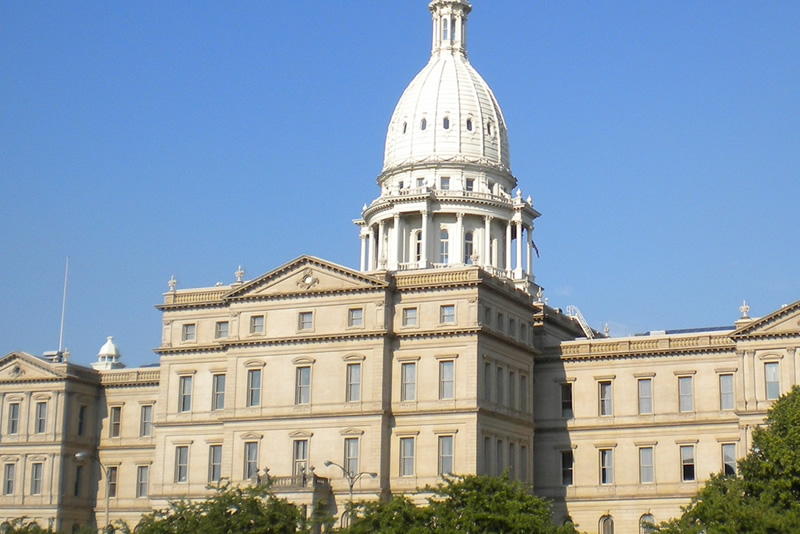The Michigan Regulation and Taxation of Marihuana Act (MRTMA)
In a lawsuit served this week to the Michigan Board of Pharmacy and its chairwoman, Nichole Cover, the plaintiffs claim the current law that issues medical marijuana cards to patients and licenses dispensaries is contradictory to the state’s Controlled Substance Act that classifies the drug as contraband. Because of that, they say its status violates their due process and equal protection rights and freedom from unreasonable searches and seizures.
“It’s not a Schedule 1 drug,” Sinclair told The Detroit News. “It’s been legalized by the citizens and approved by the state. There are thousands that take it and licenses to sell marijuana. That’s why it needs to be corrected in my opinion.”
A Schedule 1 classification refers to substances that have no currently accepted medical use and a high potential for abuse. It includes drugs such as heroin and ecstasy. The Michigan Board of Pharmacy determines the scheduling.
The lawsuit focus on the 2016 Medical Marihuana Facilities Licensing Act in which the state legislature granted the state permission to license marijuana businesses. The state Licensing and Regulatory Affairs Department’s Medical Marihuana Licensing Board began issuing licenses for businesses to grow, process, transport and sell medical marijuana last spring.
As a result, the plaintiffs that include medical patient Josey Scoggin, physician Dr. Christian Bogner, pharmacist Paul Littler, the National Organization for the Reform of Marijuana Laws of Michigan Inc. and the Michigan Medical Marijuana Association claim marijuana’s Schedule 1 listing is repealed by implication.
Michael Komorn, one of the attorneys for the plaintiffs, stated: “This is not a controlled substance.” He added “The idea that someone would be growing an opioid … and bringing it to a pharmacy because they were running low on their meds is the scenario that would have to exist in order for marijuana to remain as a scheduled drug.”
Poet and activist John Sinclair has been a cannabis activist in Michigan for more than 50 years. He stated: “For 80 years they’ve been locking people up and taking their possessions and harassing and terrorizing us as citizens because we like to smoke weed,” adding “I want to be part of every effort to completely remove the police from our lives regarding marijuana. They’ve got nothing at all to do with marijuana.”
The lawsuit argues that Michigan laws recognize the medical benefits of marijuana, and yet the Michigan Board of Pharmacy continues to list marijuana as a Schedule 1 drug — a designation that means it has no accepted medical benefits and has a high potential for abuse.
“The Michigan Department of Attorney General is in the process of reviewing and preparing a response to the complaint,” according to a statement from spokeswoman Kelly Rossman-McKinney.
The “absurdity” of the legal conflict between the Medical Marihuana Facilities Licensing Act and the Public Health Code has to be addressed, said Michael Komorn, one of the attorneys behind the case.
“It’s intellectually dishonest,” Michael Komorn of Komorn Law said.
Sinclair has a long history of advocacy in Michigan; his 1967 arrest over two joints sparked the first Hash Bash in Ann Arbor.
The Michigan Supreme Court in 1972 noted in the opinion that overturned Sinclair’s conviction that “not only that there is no rational basis for classifying marijuana with the ‘hard narcotics’, but, also, that there is not even a rational basis for treating marijuana as a more dangerous drug than alcohol.”
Federally, marijuana remains listed as a Schedule 1 Controlled Substance and its use remains illegal. The U.S. Attorney General’s office has declined to prosecute states or businesses that have launched medical and recreational marijuana programs. President Donald Trump’s nominee for attorney general, Bill Barr, has said he’ll continue that approach — but believes overarching change is needed.
We’ll see what happens…






















